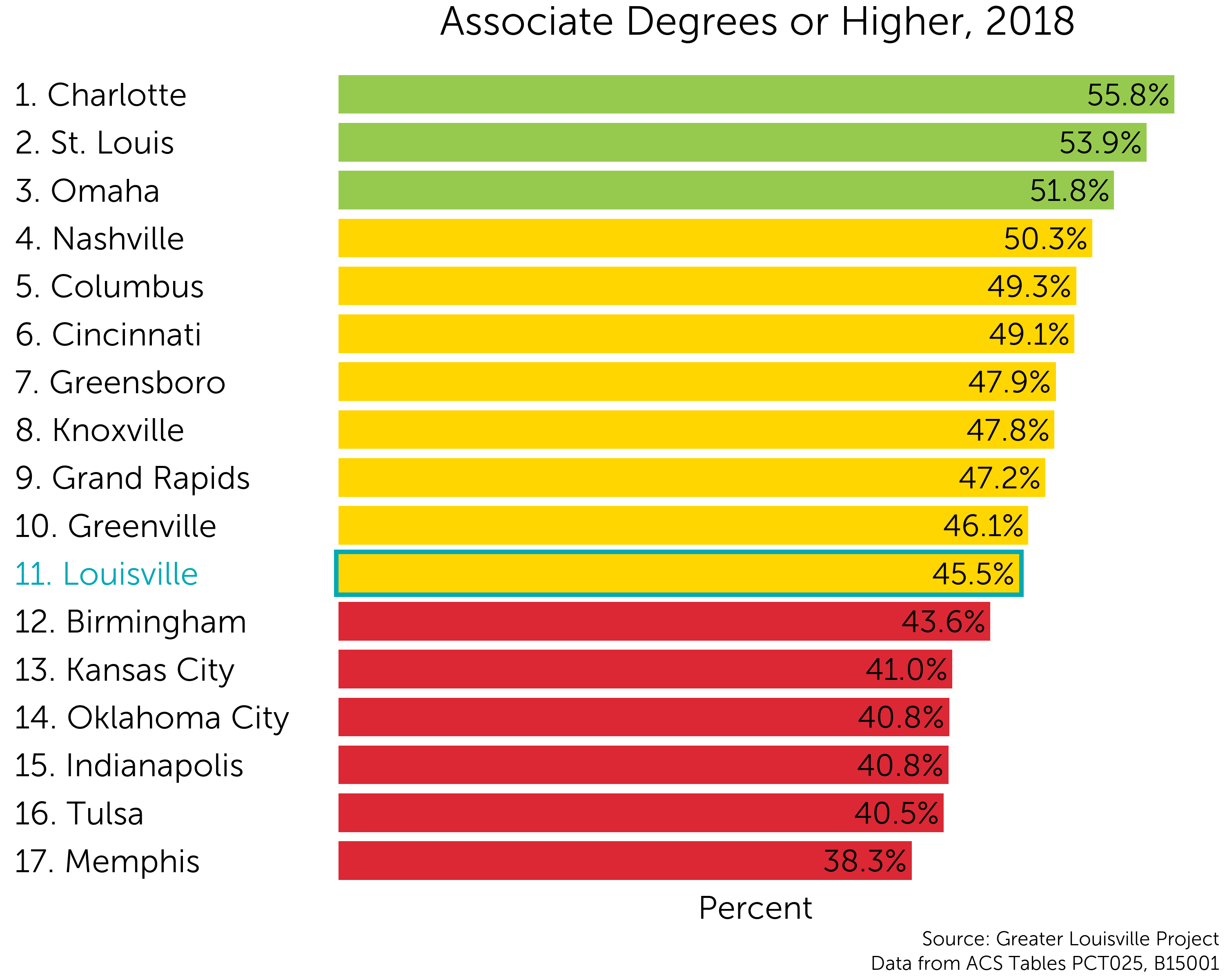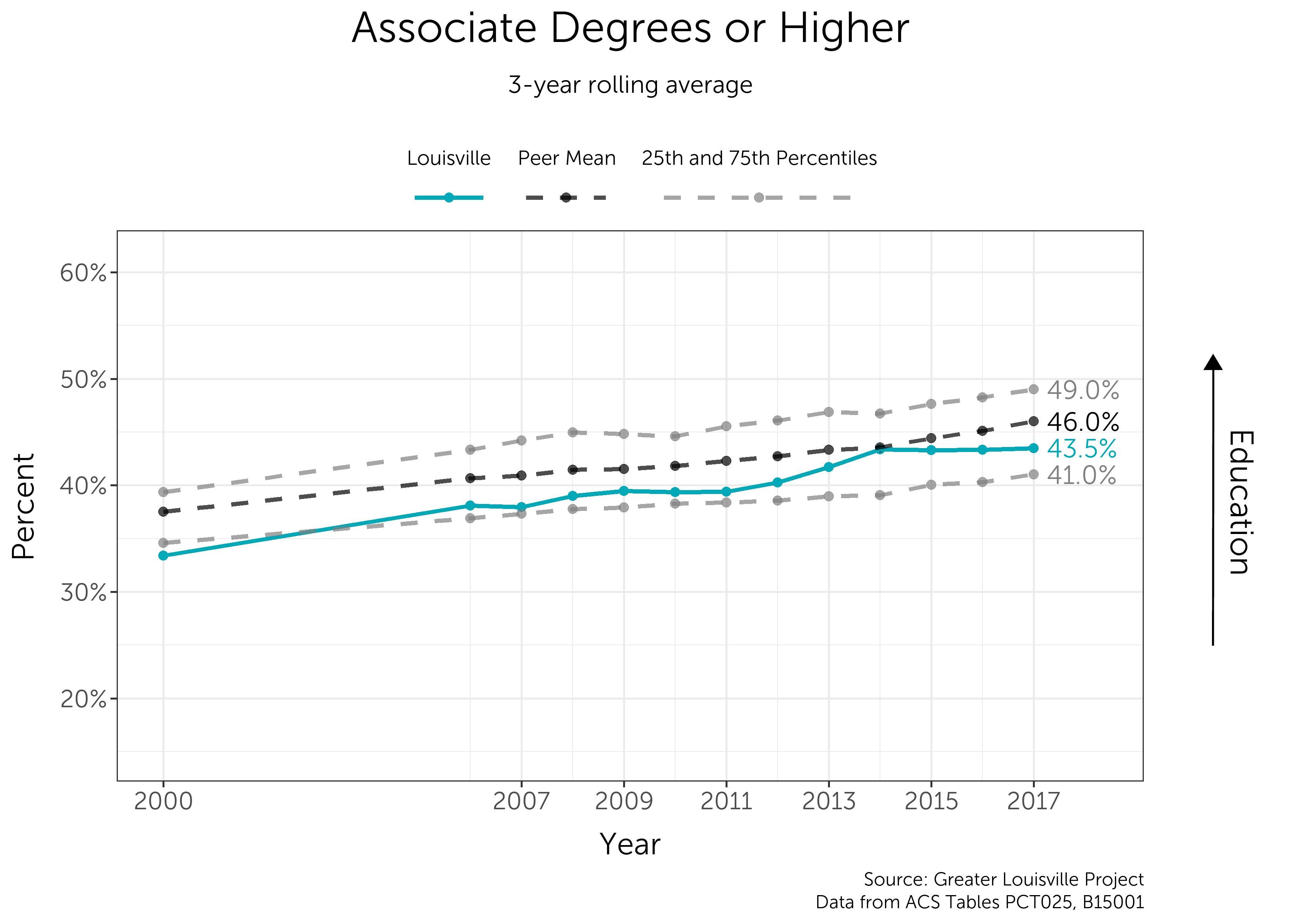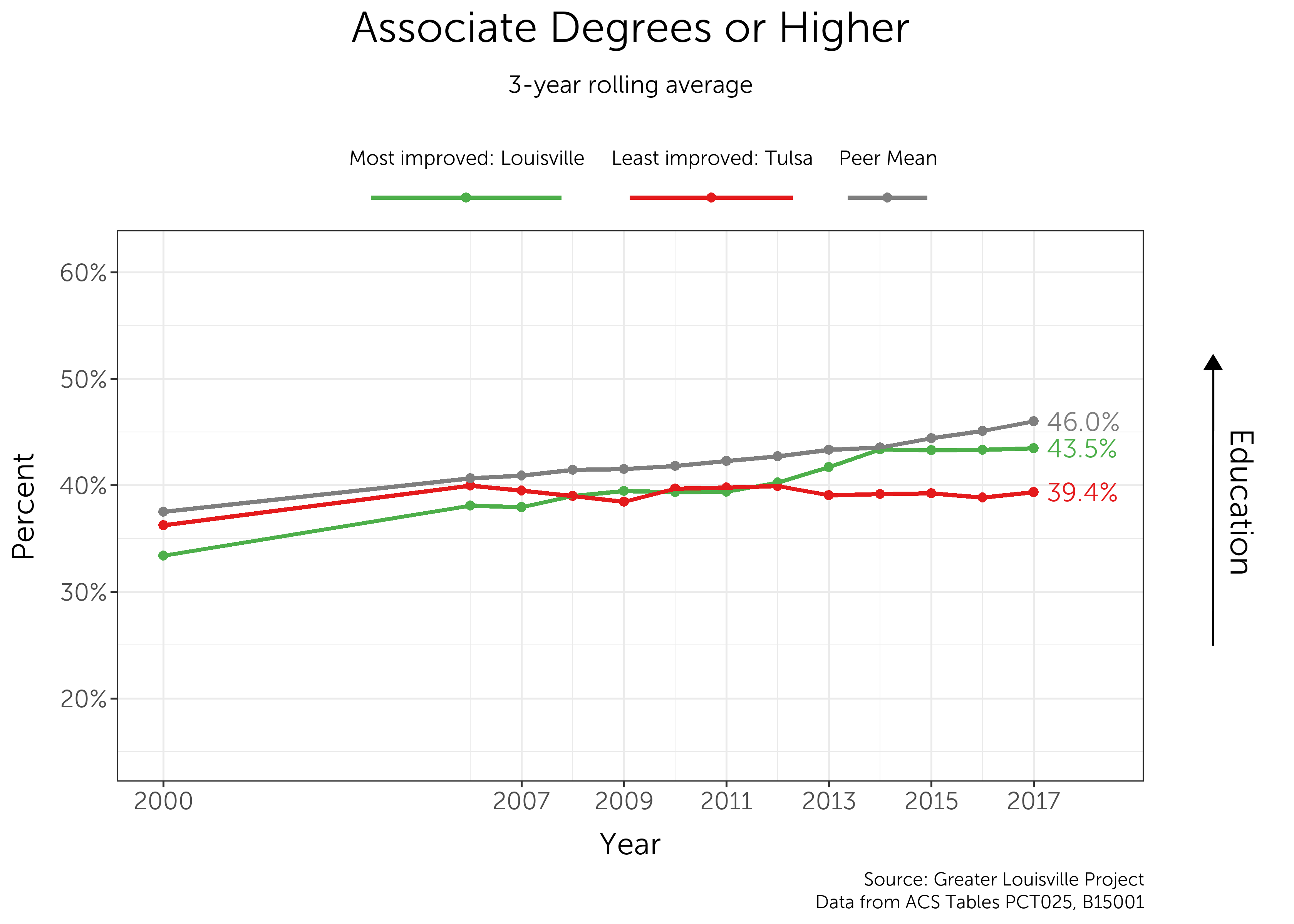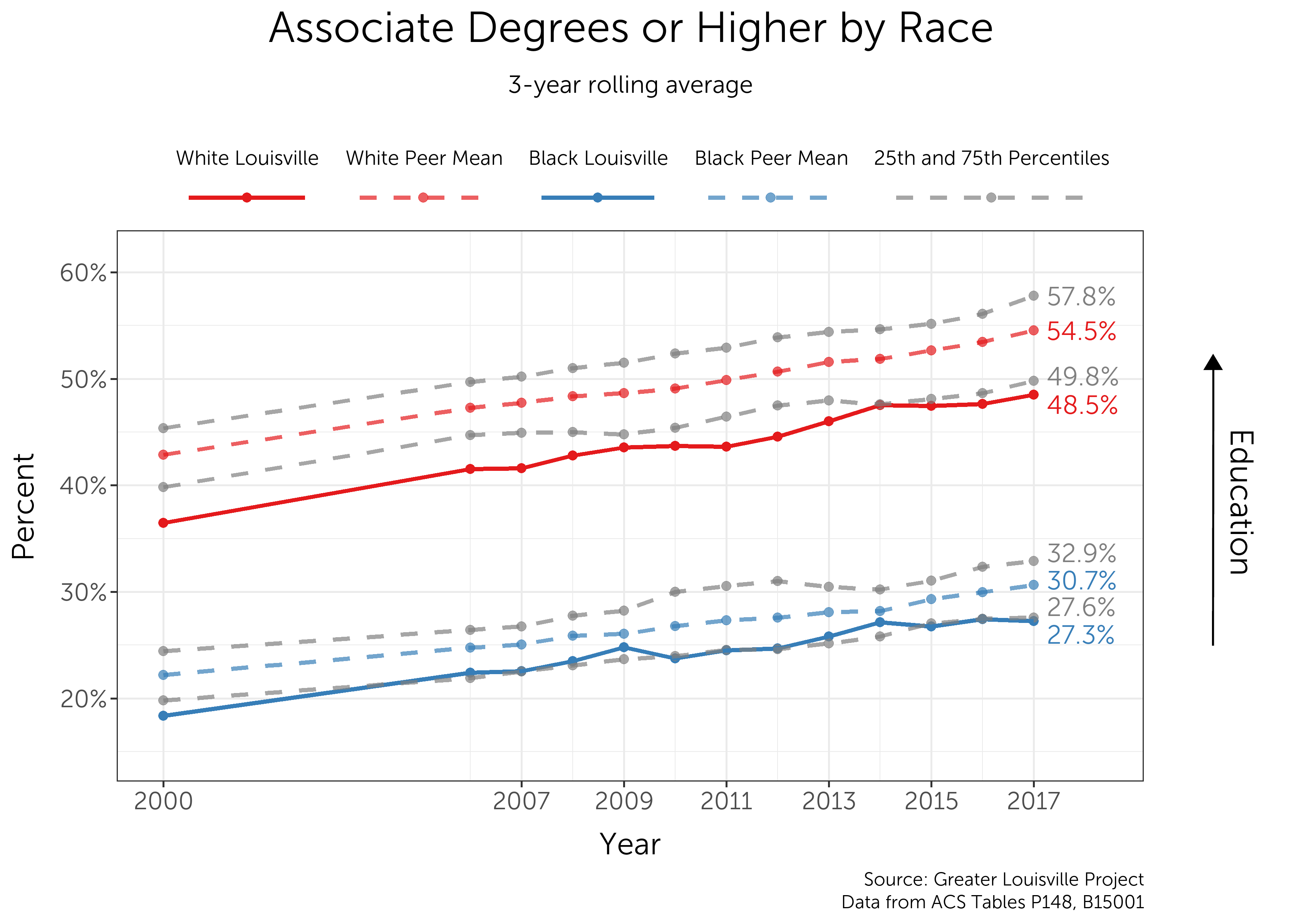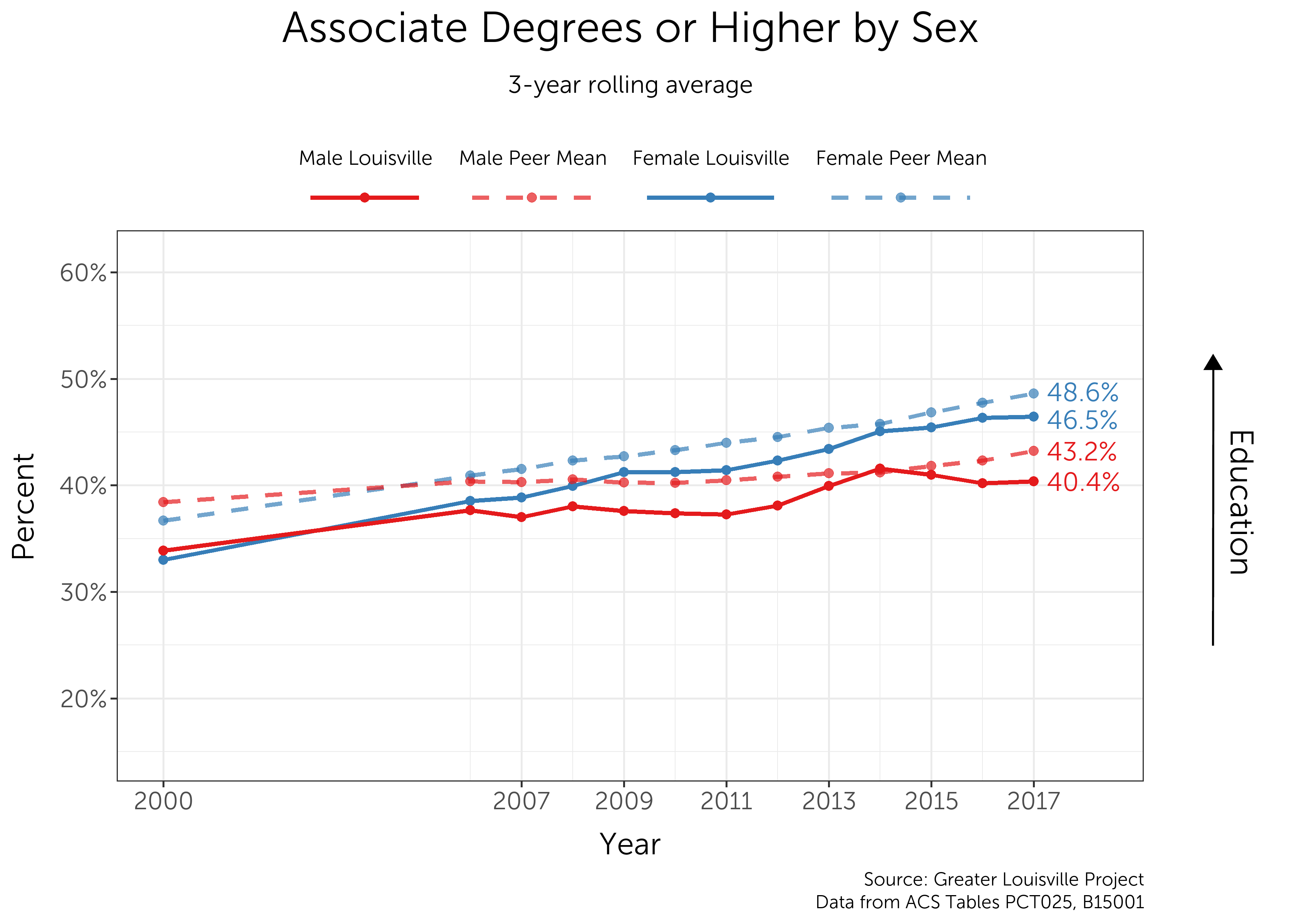Where in Louisville are associate degrees and above found?
Although many working adults in Louisville have an associate degree or higher, there is a clear geographic divide on where those people live. In the map to the left, areas where more adults have post-secondary degrees are purple. Areas where fewer adults hold post-secondary degrees are white.
High attainment of a post-secondary degrees is almost exclusively seen in east of I-65, among communities such as Northeast Jefferson, J-Town, and the Highlands. In these areas, percentages are over 80%. In comparison, there is a lower percentage of working adults with associate degrees or higher in western Louisville, with several areas showing less than 15%.
Scroll over the map to see values for each census tract. Zoom in to see street names that form the boundaries of each tract.

